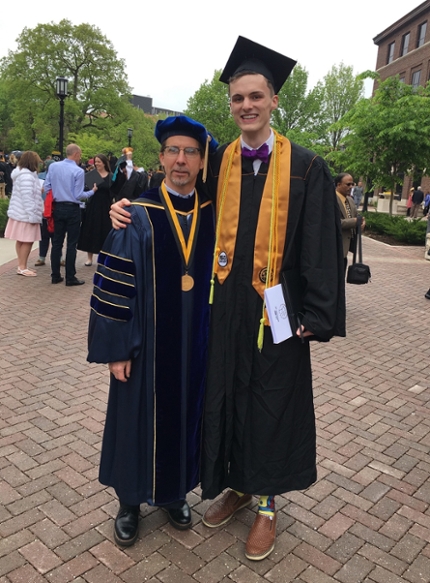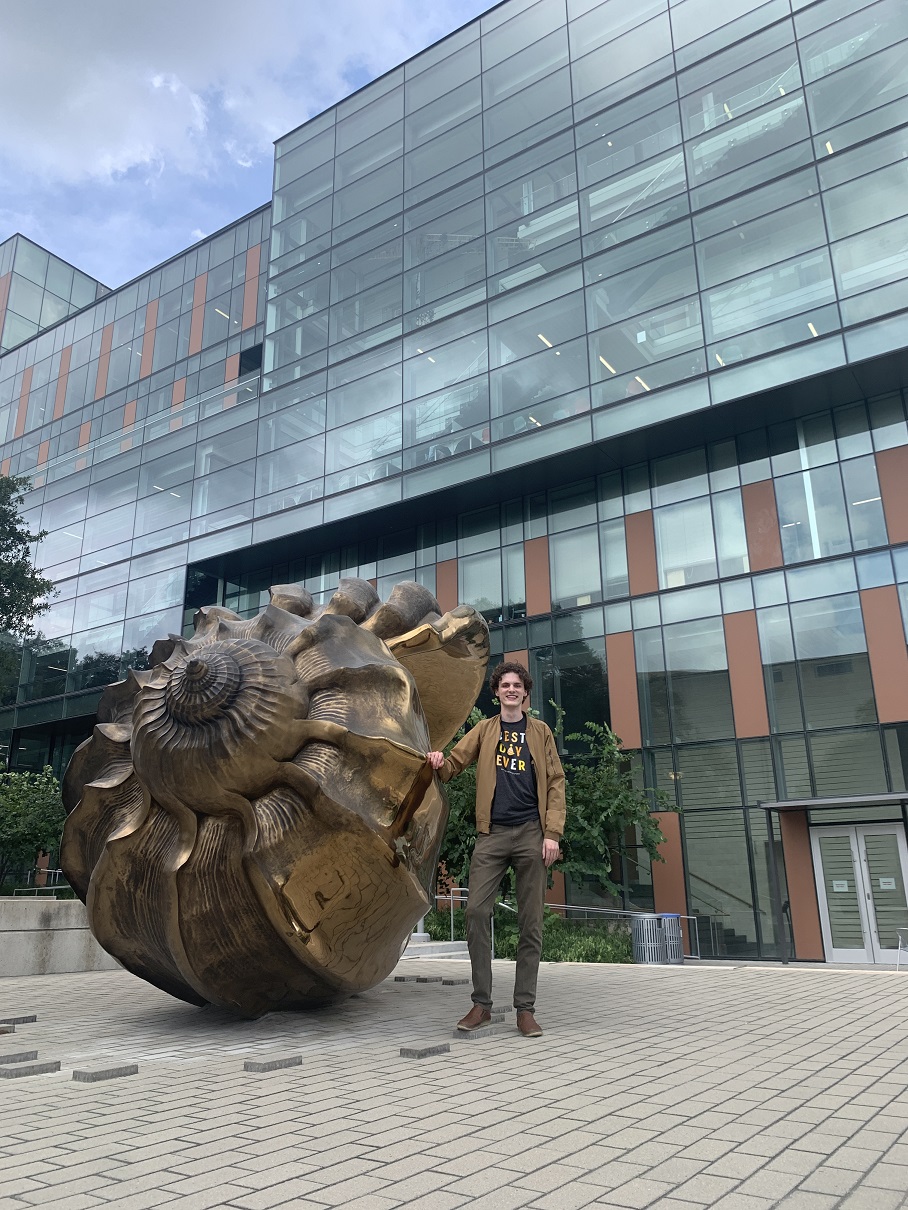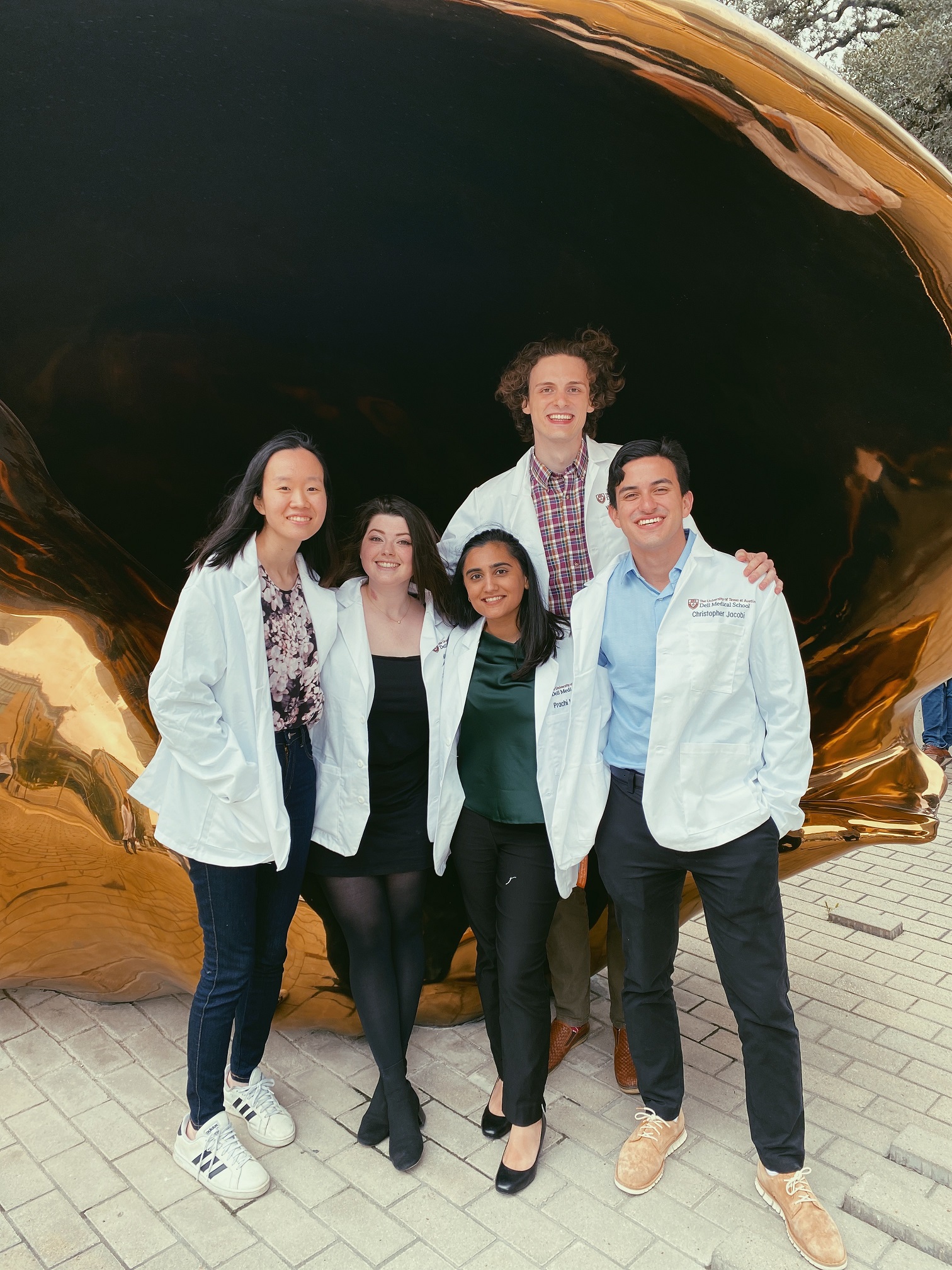Medicine and mosquitos: Purdue alumnus targets neglected tropical diseases
Will Austin came to Purdue from Austin, Texas, certain he wanted to become a physician, and the 2019 graduate is now a first-year student at Dell Medical School at the University of Texas in his hometown.
It all sounds straightforward — until Austin describes the way in which his experience at Purdue changed how he wants to practice medicine and impact the world. “Although still in the same realm, they look very different from when I stepped foot on campus,” he says.

Austin resolved to take a class each semester outside of his field of interest — “something that would push me and challenge me in different ways,” he explains. In that spirit, he signed up for an entomology course in his second semester, in part to combat his childhood fear of insects.
The class so intrigued him that Austin soon approached his advisor to ask about earning two degrees in two separate colleges at Purdue. By the start of his sophomore year, he was pursuing degrees in entomology in the College of Agriculture and in health and disease, a sub-concentration of biology, in the College of Science.
“I didn’t actually know what I was doing, only that insects were as captivating to me now as was the human body,” he says. Finding common ground between two seemingly unrelated disciplines was challenging. “For awhile I developed the two interests in parallel without knowing what I was going to do with them,” he recalls.
The natural link became apparent in his junior year, when Austin delved further into insects and specifically, mosquitos. He also conducted research with Catherine Hill, professor of entomology/vector biology and interim entomology department head. While lab research strengthened his skills as a scientist, it also affirmed Austin’s determination to combine public health with clinical practice.
“I realized vector-borne disease is the link, and medical entomology is how I can bridge the two,” he says.
“I knew I had met a very special individual the day Will sailed through the lab door with his big smile, infectious positivity, genuine enthusiasm to make an impact and some very big ideas about what he wanted to do with his life,” Hill recalls.
“My role as advisor was to help Will explore the breadth and scope of professional opportunities available to him in the field of medical entomology, how he could connect his interests at the intersection of neglected tropical infectious diseases and medicine with his passion to advance global public health, and how he could begin to chart a path to realizing these goals,” Hill says. “However, Will did all the heavy lifting. I was very impressed by his determination.”

“A mosquito is instrumental in food chains, important in nutrient cycling, and the males are also pollinators — facts I never knew,” Austin says. “Yet, it can transmit diseases that are part of the cause of 17 percent of illness and disability worldwide. That paradox of something so small having an impact way bigger in magnitude than its size suggests, gripped me.”
Earlier in his Purdue career, he had joined a medical brigade to Ecuador with World Health Purdue (then Timmy Global Health). “Through it, I started to learn about the social determinants of health and how they play a major role in shaping what’s going on inside our bodies,” he says.
The experience was so impactful that he prioritized his commitment to World Health Purdue, eventually serving as its president. “Being actively involved in the organization transformed my way of thinking about human health from one of pure physiology to one shaped by a multitude of factors — sociocultural, economic, political and more,” he says.
“The mosquito was sort of my little bus that I rode on through this journey of human health.”
His destination of neglected tropical diseases (NTDs), he explains, form a class of 20 diseases that exact a human, social and economic toll on the world’s most neglected 1.7 billion people. NTDs have community-wide impact, often in agricultural-based communities, and trap generations in poverty. For that reason, leaders in the field often describe them as neglected diseases of poverty, Austin explains. “These diseases are chronically underfunded and overlooked in health systems, but addressing them is one of the best things we can do to improve health worldwide.”
Following his graduation from Purdue, a research internship with a nongovernmental organization took him to Nairobi, Kenya, where he completed a pilot study on dengue mosquitoes. “That showed me that community-level work was something I actually wanted to do as a future physician,” he says.
Austin was preparing to go to Thailand in September 2020 as part of the Fulbright U.S. Student Program when COVID derailed his plans. He shifted gears and instead prepared to begin medical school at Dell in June 2021.
“One of the reasons I chose Dell is that they want to do something unorthodox,” he says, adding that his class of 50 reflects the school’s mission to revolutionize the way people get and stay healthy: “They really are intentional about who they bring together.”
Austin plans to complete his four-year medical school program with a dual degree, adding a Master of Science in Healthcare Transformation — a degree unique to Dell — to his MD. Although he is drawn to pediatrics, he would seek out a combined internal medicine and pediatrics residency to better treat both adults and children in the communities he one day hopes to serve.
Austin is thinking ahead. After residency, he envisions practicing for a couple of years in a U.S. metropolitan area hospital to develop as a new physician. He then plans to live and work outside the U.S. in a tropical disease-endemic region for a decade or two to learn how best to combat neglected tropical diseases by both treating patients and working in a public health capacity.

Eventually, he adds, he would return to the U.S. and apply his field experience in a nongovernmental organization focused on strengthening health systems and combating neglected tropical diseases. By that time and given the effects of climate change, the U.S. may no longer be immune to the types of vector-borne diseases that wreak havoc in other parts of the world, he says. “Currently, we don’t have a public health infrastructure that’s set up to deal with that. We’re also going to need an interdisciplinary team of professionals, and I want to be part of it.”
Hill invited Austin to guest lecture in her Medical and Veterinary Entomology (ENTM 52500) course last year. “The students said his lecture was their favorite part of the class,” Hill says. “I was reminded of one of the reasons I love this job — the opportunity to work with future leaders like Will and to share in their achievements and the impacts they make after they leave Purdue.”
“Purdue’s insect biology major trains and empowers our graduates to address the societal grand challenges of today and tomorrow,” she adds, “whether that is helping build climate-resilient systems, preserving species diversity and natural resources, ensuring food security, protecting against disease outbreaks and biosecurity threats, or delivering next-gen pest management technologies.”
Ultimately, Austin hopes his career will involve developing and implementing global initiatives against neglected tropical diseases. “That’s how I have it mapped out today, but we’ll see how it grows,” he says. “I remind myself that the reason I even got to this point was that at Purdue, I was open to taking that entomology course.”






